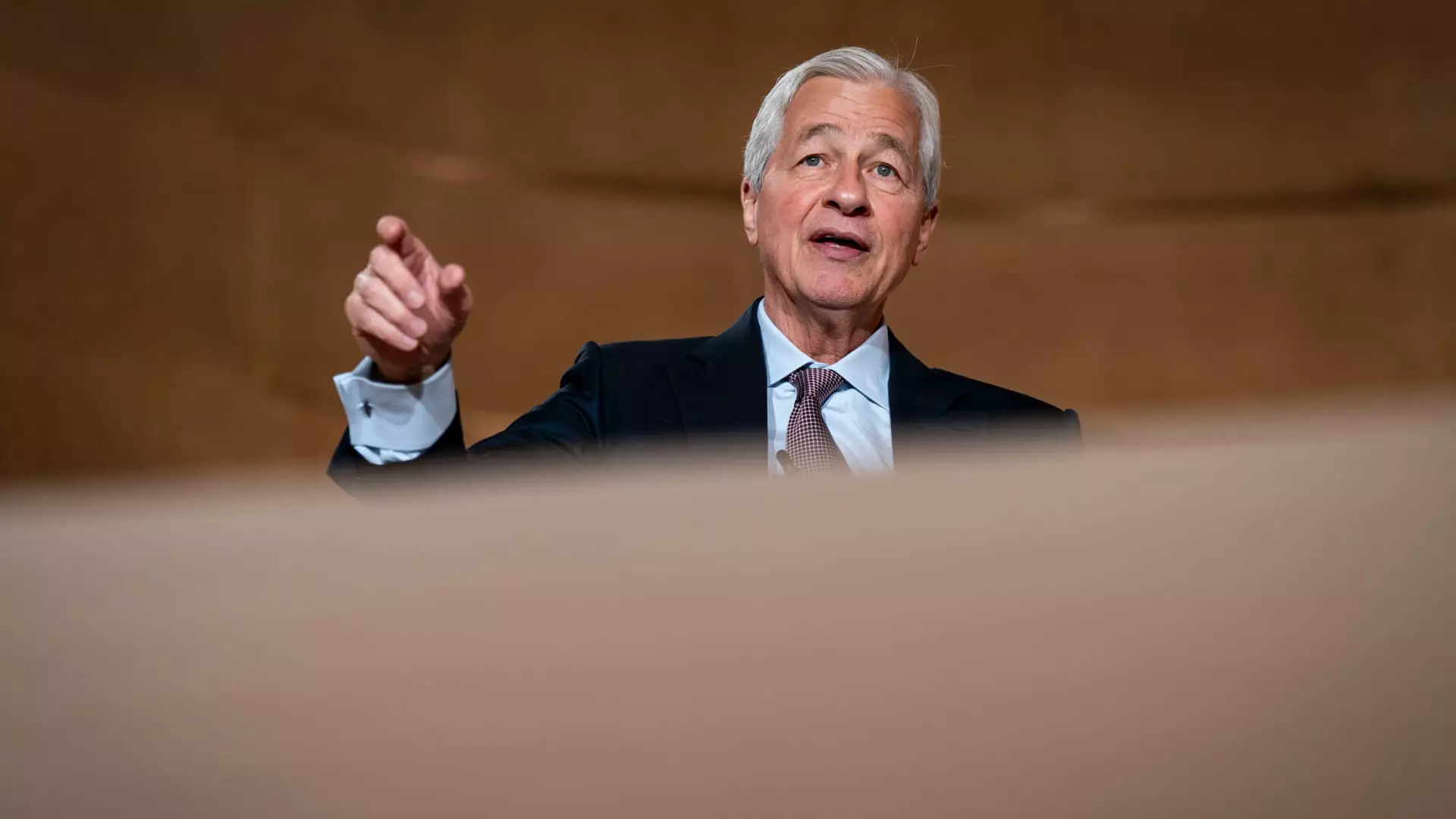In a world where optimism reigns, Jamie Dimon, the CEO of JPMorgan Chase, offers a jolting perspective that contradicts the prevailing aura of confidence in the financial markets. At the recent annual investor day meeting in New York, he laid bare a stark reality that many in high finance seem eager to overlook: the risks stemming from bloated U.S. deficits, dubious tariffs, and escalating global tensions. What sets Dimon apart is his unflinching acknowledgment of the economic storm brewing on the horizon, one that central bankers and investors alike may be ill-prepared to weather.
Dimon’s assertion that current stock market valuations reflect a dangerous level of complacency is not merely a hyperbolic expression; it is a call for introspection. He argues that the indices’ resilience amid adverse economic indicators—such as rising inflation and a burgeoning national debt—is a risky delusion. Investors are reassured by an inexplicable sense of stability, believing that the Federal Reserve can control the ramifications of fiscal mismanagement and geopolitical strife. Yet Dimon’s skepticism raises an alarming question: could we be standing at the precipice of economic calamity, blissfully unaware?
The Inflation Shadow Looms Larger
Dimon’s warnings about inflation cannot be brushed aside as mere pessimism. The specter of stagflation—defined as stagnant economic growth coupled with high inflation—haunts the backdrop of his tenure as CEO. With market analysts predicting a sharp decline in earnings growth, the ramifications could be catastrophic. Dimon posits that the stock prices we see today may not only be propped up by inflated investor sentiment but are also resting on a foundation of declining earnings projections. Should earnings estimates plummet as anticipated, the price-to-earnings (P/E) ratios will inevitably follow suit, leading to a significant market contraction.
Recent downgrades of the U.S. credit rating by major agencies like Moody’s further illustrate the fragility of our economic landscape. The growing debt burden is not just a number on a balance sheet; it represents unquantified risks that reverberate throughout the global economy. When leaders like Dimon express concern, it is not noise meant to unsettle markets—it’s a warning bell that should command our attention. The fact that many corporate clients are adopting a “wait-and-see” approach only intensifies this uncertainty, with investment activities stifled by the shadow of inaction.
Corporate Mindset: Cautious or Complacent?
While Dimon’s macroeconomic outlook is sobering, the behaviors of corporate entities seem perpetually locked in a state of inertia. The reluctance of companies to engage in acquisitions or to make significant investments indicates a profound hesitation, stemming from uncertainty about the economic landscape influenced by political decisions. With looming threats from trade policies and the risks associated with them, it’s no wonder corporate leaders are hesitant to put their capital on the line.
Such a risk-averse mindset is problematic. While caution is inherently wise in turbulent times, a complete halt in corporate activity could exacerbate economic stagnation. The irony lies in the very nervousness that leads to paralysis, which in turn perpetuates a negative feedback loop of economic decline. This attitude not only stunts growth but also reinforces the notion that we are teetering on the edge of a recession punctuated by inflation.
Looking Ahead: Time for a Change in Leadership?
Amidst this economic malaise, discussions about leadership transitions at the top of JPMorgan Chase inevitably emerge. Dimon’s candid admission that he may remain at the helm for a few more years raises critical questions about continuity in leadership during these tumultuous times. Does the bank need a new vision that is more attuned to the realities of impending economic challenges? As potential successors are lined up, including Marianne Lake, it raises the stakes: do we need leaders unafraid to challenge the status quo and confront the complacency that has seeped into the fabric of corporate America?
While Dimon’s insights are rooted in an intricate understanding of market dynamics, they dare us to reconsider our collective approach to economics and governance. Neglecting the gravity of his warnings could plunge us into an economic crisis marked not by the unexpected but by our unwillingness to confront uncomfortable truths. Indeed, it seems that while the market may recover momentarily, the underlying issues—like a dormant volcano—remain poised to erupt if left unaddressed.

